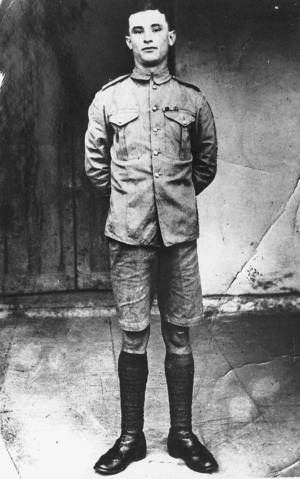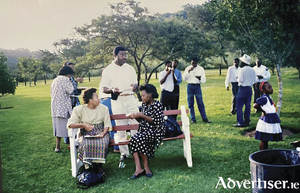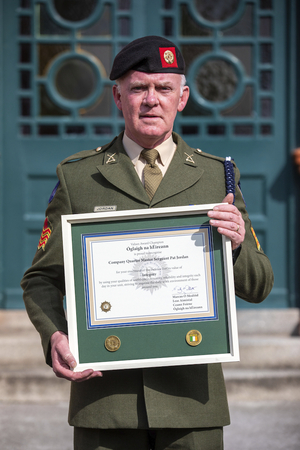Search Results for 'counsel'
26 results found.
Renmore man ordered to stay away from College Road

A man with an address in Renmore was ordered to observe strict bail conditions as he awaits a hearing of alleged harassment charges, including staying away from College Road and having no contact with his alleged victims.
Four weddings and a mutiny – India 1920

On 28 June 1920, members of the Connaught Rangers Regiment stationed at Wellington Barracks, Jullundur in Punjab, mutinied in protest against the activities of the British Army in Ireland. The irony of their stance as members of a colonial occupying army was, it would seem, lost on them. Two men took the protest to the Connaught Rangers company at Solon Barracks the next day. On the evening of 1 July, a group armed with bayonets attempted to take weapons from the magazine fort at Solon. The guard opened fire, killing a mutineer and an innocent man. The protest started peacefully at both locations—orders were ignored, tricolours were flown, Sinn Féin rosettes were worn, and rebel songs were sung. Sixty-one men were convicted of mutiny. Fourteen were sentenced to death, but only one, James Joseph Daly, was executed. Those imprisoned were released in 1923. Ballina man James J. Devers, one of the Solon mutineers, was among those released. Devers enlisted in 1918.
Through the glass darkly

In the English city of Norwich, if you go to the outskirts of the city, you will find the small church of St Julian. I have just finished reading a new novel by Claire called I, Julian, a beautifully written imagining of the life and times of this celebrated English mystic.
Community archive project Reverberate documents Black Irish migrant experience

Reverberate is an oral history project developed by Éireann and I, a black migrant community archive, in collaboration with members of Galway’s African diaspora.
Troy issues statement as he departs Government Minister of State role
Departing his Government role as Minister of State at the Department of Trade, Enterprise and Employment with special responsibility for Trade Promotion, Deputy Robert Troy, issued a press statement in which he apologised and accepted responsibility for declaration errors pertaining to his property interests, assuring his constituents that he will continue to work diligently for their cause in his role as a public representative.
How to keep your eyes on the prize in a short-term position
Q: I’ve been offered six months in a company where I would really like to build a long-term career. It is a temporary project with a September deadline. Once that’s over, I’ll be gone. Any tips for how I can make a name for myself and possibly stay on after the six months now that I have my leg in the door? (AR, Email)
How to keep your eyes on the prize in short-term role
Q: I’ve been offered six months in a company where I would really like to build a long-term career. It is a temporary project with a September deadline. Once that’s over, I’ll be gone. Any tips for how I can make a name for myself and possibly stay on after the six months now that I have my leg in the door? (AR, Email)
‘The best security for the honour of a wife, is prudence on the part of the husband.’

Week III. It took two years since Col Richard Martin’s wife Eliza eloped with John Petrie, a merchant, before the long process of divorce in the 18th century could begin. It promised to be a sensational case given the status of Martin, a larger than life character, one of the largest landowners in Ireland, his reputation as duellist, and his enormous popularity for his gift of mimicry and acting.
How to maintain focus as interview approaches
Q: I applied for a job yesterday, they rang first thing this morning and want to interview me on Friday. Can I therefore take it that they are very keen to hire me? (DL, email)
Mayo native Company Quarter Master Sergeant receives award from President

Supreme Commander of the Defence Forces, President Michael D Higgins, this week welcomed a small group to Aras an Uachtarán where he presented serving members with Defence Forces Values Awards.

